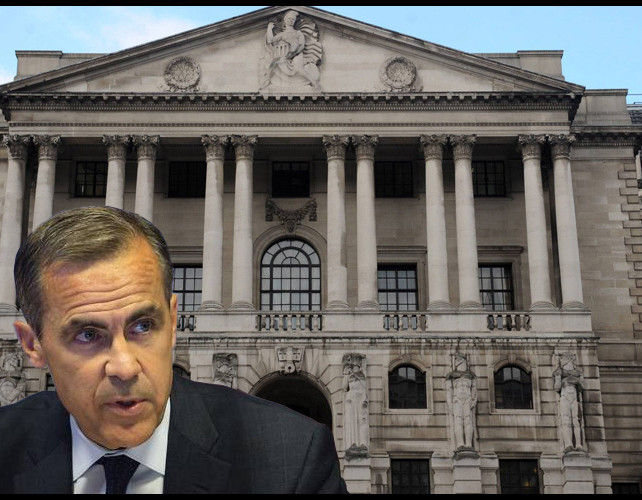
Monetary stimulus may need to be withdrawn to some extent in future, Bank of England Governor Mark Carney said Wednesday, implying interest rates may be raised, altering his stance from earlier this month when the bank left the interest rate and asset purchases unchanged.
"Some removal of monetary stimulus is likely to become necessary if the trade-off facing the MPC continues to lessen and the policy decision accordingly becomes more conventional," Carney said during a panel discussion at a European Central Bank forum on central banking in Sintra, Portugal.
The pound jumped as Carney made the remark.
Carney noted that his view was to leave the policy stance unchanged at the Bank of England policy-making session earlier this month due to mixed signals on consumer spending and business investment.
"It was too early to judge with confidence how large and persistent the slowdown in growth would prove," he said.
"Moreover, with domestic inflationary pressures, particularly wages and unit labor costs, still subdued, it was appropriate to leave the policy stance unchanged at that time."
At the June meeting, the Monetary Policy Committee voted 5-3 to keep the record low interest rate unchanged. Kristin Forbes, Ian McCafferty and Michael Saunders sought a quarter point rate hike at the June meeting. They said partial withdrawal of stimulus will help to moderate inflation overshoot.
In his Mansion House speech last week, Carney said the time was not right to raise interest rates, citing weak wage growth and subdued inflationary pressures.
Earlier on Wednesday, BoE Deputy Governor Jon Cunliffe echoed Carney and said that the time was not right for a rate hike.
In an interview with BBC Radio, Cunliffe said he would wish to see how inflation evolves, adding that inflation above the 2 percent target is "not a comfortable place" for any member of the monetary policy committee.
For Cunliffe, it was important to consider how much of the overshoot was generated domestically, and how much caused by the fall in the sterling exchange rate.
Meanwhile, fellow policymaker and BoE chief economist Andrew Haldane has signaled favor for an interest rate hike.
"The extent to which the trade-off moves in that direction will depend on the extent to which weaker consumption growth is offset by other components of demand including business investment, whether wages and unit labor costs begin to firm, and more generally, how the economy reacts to both tighter financial conditions and the reality of Brexit negotiations," Carney said.
"These are some of the issues that the MPC will debate in the coming months," he added.
UK inflation accelerated to a four-year high of 2.9 percent in May. The central bank has forecast 2.7 percent inflation for this year.
Carney pointed out that the UK output was now "in sight of potential", and the capital overhang could be eliminated over the next few years. Companies will increasingly need to invest in order to expand, he added.
"Indeed, the broad-based global recovery is creating the possibility of a self-reinforcing revival in investment," the BoE Chief said.
by RTT Staff Writer
For comments and feedback: editorial@rttnews.com
Economic News
What parts of the world are seeing the best (and worst) economic performances lately? Click here to check out our Econ Scorecard and find out! See up-to-the-moment rankings for the best and worst performers in GDP, unemployment rate, inflation and much more.
